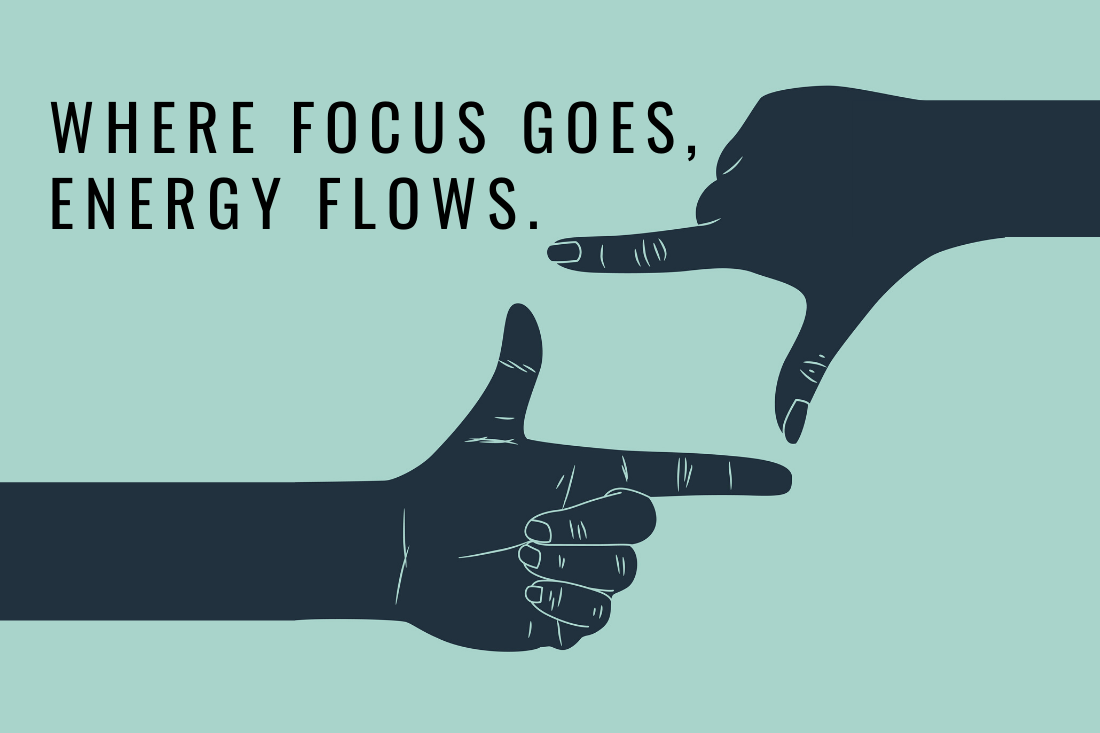In sales conversions, my strategy is to minimise questions while maximising information extraction. I think keeping the conversation relaxed is key, employing open-ended inquiries like 'tell me more,' 'how so?' or 'help me understand.' As these questions facilitate deeper insights, like 'walk me through that again' or acknowledging emotions with 'that seems quite emotional for you, why is that?' I believe in always entering client meetings fully aware of the desired outcome, and by creating a precise plan for the next steps ensures that my questions align with moving towards that goal.
Mutual understanding
Do you think that trust is the emotional glue of all relationships?
Trust is the cornerstone of all relationships, acting as a binding agent that holds them together. I think building trust is like forging a path beyond our comfort zones, creating bridges to meaningful connections. It thrives on honesty, accountability, and openness to cultivate and maintain trust in any relationship. Trust might not be the sole emotional glue for every relationship, for example, respect, communication, empathy, and shared values also plays a significant role in sustaining strong and healthy connections.
Following a conversation
In conversations, prioritising active listening stands out as immensely valuable and I think that being mindful of how we listen is crucial. For example, while engaging in dialogue, there might be moments where what's communicated doesn't align. In such instances, a constructive approach involves acknowledging these discrepancies gently: 'Earlier, you mentioned this, but now you're saying something different.' The focus remains on active listening, enabling one to trace conversations over an extended period—observing the apparent disparities and contradictions without accusation. It's not about asserting moral superiority; instead, it's about assisting in framing the situation coherently, highlighting inconsistencies for a clearer understanding.
Progressive social practices
While innovation remains essential for brands, the definition of innovation is moving away from focusing on continuous product launches to incorporating genuine advancements in environmental and social practices, for example, sustainable manufacturing production, materials and techniques. Nowadays the significance of authenticity has moved from being centred on a brand’s compelling story or niche positioning to being about the strength of a company’s sustainable operations internally and across its entire supply chain. I think this evolution underlines the importance of sustainability and ethical considerations in modern business strategies. What do you think?
Communication is the key
If you can control perception, then you can control behaviour. If you can dominate the narrative so people are only hearing one side of the story or one version of the story then you are going to dictate the perceptions of vast numbers of people, especially if they haven’t had any other angle to consider. This is so easy when you are addressing a population who do not question anything:
Q: How do you know that?
A: I saw it on the news
Q: How did they know that?
““In times of change the learners will inherit the world, while the knowers will be beautifully equipped for a world that no longer exists.” ”
Change is in the air
Conscious behaviours
Sustainability has evolved from being merely a business differentiator to an indispensable requirement for operations. Today, it serves as a license to operate rather than just a selling point. Environmental, social, and governance (ESG) criteria have become pivotal benchmarks for socially conscious investors when considering potential investments. I think where significant investments flow, others will inevitably follow suit. For small and medium enterprises (SMEs) in the consumer sector, prioritising sustainability isn't just ethical; it's increasingly strategic. Aligning with ESG principles can significantly enhance the chances of a successful sale and improve valuation, given the growing importance placed on sustainability by investors.
Politeness and courtesy
Is it just me or has society really regressed that much?
I had a really good upbringing as a child in South London, where I was taught right from wrong and about being polite. Politeness and courtesy seem to have become less common in daily interactions, and nowadays people seem so surprised when you are polite to them. There might be various reasons for this, for example, cultural shifts or changes in social norms, also, in an increasingly fast-paced world, people might be more focused on efficiency rather than interpersonal niceties. However, there are still many who value and appreciate politeness, this might not always be immediately evident, but small acts of kindness and consideration can make a significant impact, even in a society that sometimes seems to undervalue them. Contact me via e-mail and let me know about some instances where you noticed surprise when being polite.
The Danish club
In my experience from living in Denmark, there is immense pride in the achievements of Danes on the international stage. Within the Danish football community, Brentford are affectionate known as the "Danish club." This recognition is owed to several key factors, for example, the presence of Thomas Frank as the head coach, a line-up boasting five Danish players in their first team squad, and the ownership of Matthew Benham, who is also Danish solidifies this connection.
Thomas Frank's dedication to constant improvement and innovation in coaching tactics has notably shaped the team's approach. It's worth mentioning that he benefits from the guidance of a leadership mentor who aids him in refining his communication, man-management, and leadership skills. This combination of factors not only contributes to Brentford's success but also reflects the Danish influence and emphasis on continuous growth and innovation in the footballing world. I think having someone in a mentorship or coaching role can make a substantial difference in one's journey toward success and fulfilment regardless of whether it's in career advancement, personal growth, skill-building, or even in maintaining motivation.
The best performers
High-performance in any chosen field whether it be business, stage or sport requires involves ongoing management of one's mindset. I think it's about continuously evolving your personality, expanding your abilities, and being open to facing new challenges. Therefore, this journey toward high-performance isn't just about success in your profession; it's also about nurturing your mental and emotional well-being. This holistic approach emphasises the interconnectedness between personal growth, professional success, and overall well-being.
Context changes perception
Our behaviours are driven by our emotions, our emotions are driven by our perception and our perceptions are driven by context. I think if you change the context by which someone sees the same thing, they perceive it and emotionally respond completely differently. It's almost like tweaking the angle of a mirror; the reflection changes with just a slight adjustment. By altering the circumstances or offering a different perspective, we have the power to change how someone perceives and reacts to the same situation, encouraging empathy, understanding, and even altering behavioural outcomes.
One of the most valuable laws
One of my favourite principles is the Principle of Conservation of Energy, which essentially states that energy cannot be created or destroyed in an isolated system, only transformed from one form to another. This principle transcends various fields, from physics and engineering to economics and even psychology. In finance, for example, the concept of conservation of energy could be related to how resources are allocated and redistributed without any loss. I think it's incredible how foundational principles like this one can have such wide-reaching implications across diverse domains.
It's not for everyone
Leadership development is a critical facet of any organisation's success. While it may not be suited for every individual, those who recognise the value of leadership programs and models are drawn to companies that prioritise this aspect of personal and professional growth. Ambitious young professionals, in particular, seek out employers who provide opportunities for personal and career development as they are on the lookout for mentors, coaches, and role models who can guide them on their journey to success. In this highly competitive job market, if a company fails to address and emphasise these aspects of leadership development, they risk losing top talent to other organisations that do. Therefore, a solid leadership model and program not only attract talented individuals but also play a pivotal role in retaining and nurturing the potential of the workforce, ensuring the company's long-term growth and prosperity. I think by acknowledging the importance of leadership development, companies can build a culture of continuous learning and personal growth that benefits both the organisation and its employees.
What's in it for me?
I think that when you are quite famous, you will receive invitations to speak from businesses you didn't know existed and gain opportunities and partnerships beyond your imagination due to other people's awareness of you. It’s a fact that well-known individuals or businesses often receive speaking invitations, and visibility can lead to new opportunities. On the other hand, fame doesn’t automatically bring a plethora of unexpected opportunities and partnerships. Success usually involves a combination of factors beyond fame, such as expertise, skills, networking, and strategic decision-making. While being famous can undoubtedly enhance visibility and open doors, the extent and nature of the opportunities may vary, and not every business or invitation may align with the individual's or business's goals and field.
““Who do we give our attention to nowadays?””
Dear manager's
When framing employee performance issues, it can be helpful for managers to analyse the root cause by considering whether the problem is related to skill (lack of expertise), will (lack the motivation), or hill (difficulty of task). I think by identifying whether the issue is rooted in skill, will, or hill, managers can tailor their approach to address the specific challenges employees are facing. This analytical framework helps in developing targeted solutions, fostering a more effective and supportive work environment. Also, it enables managers to provide constructive feedback and guidance that is aligned with the nature of the problem at hand.
Let’s break it down
Artwork by Rvasilovski
Value creation extends beyond efficient manufacturing of predefined goods as one has to understand that a very large part of economic value is created in the mind and not in the factory. I think marketing is as much a source of value creation as manufacturing, unfortunately not everyone shares this perspective. There are many thinkers who believe that value is inherent and can be manufactured with increasing efficiency. I contend that true innovation lies not only in altering the products themselves or the means of production but also in reshaping people's perceptions as I believe innovation and marketing are fundamentally two sides of the same coin. And there are only two ways that you can create new economic value - you can either find out what people want and work out a clever way to make it or you can work out what you can make and find out a really clever way to make people want it. What do you think?
A holistic endeavour
Achieving high performance in any chosen field, whether it be in business, on the stage, or in sports, requires continual attention to mind-management, and this involves a dynamic process of cultivating mental resilience, refining skills, and fostering adaptability. Beyond the pursuit of success, this approach is integral to maintaining optimal mental and emotional well-being. I think by actively developing one's personality and expanding their capacity to embrace new challenges, individuals will enhance their performance and also cultivate a robust foundation for enduring success. This ongoing commitment to self-improvement will enable individuals to navigate the complexities of their chosen field with agility and poise, contributing to their professional accomplishments as well as a more balanced life.
Energy flows where attention goes
c/o Success Magazine © 2020
Energy can be changed from one form to another, but it cannot be created or destroyed. The total amount of energy and matter within the Universe remains constant, merely changing from one form to another. This principle is encapsulated in the First Law of Thermodynamics, known as the Law of Conservation, which states that energy is always conserved, it cannot be created or destroyed. As Tony Robbins says, “energy flows where attention goes”. To get what you really want in life, you need a clear goal that has purpose and meaning behind it. Once this is in place, you can focus your energy on the goal and become obsessive about it. I think that when you learn how to focus your energy amazing things will happen. What do you think?
Busy vs. productive
There is a difference between busy and being productive!
Being productive is really about narrowing your focus, it’s about prioritisation and it means you carefully select what’s most important, and eliminating things that are not so important. I think you should invest your time and energy in things where it’s going to make a difference to your goals and outcomes. A successful day is a day where you make massive progress on the things that matter for you. There are only two major things that make you productive in sales, one is opportunity creation and, and the other is opportunity capture.
“Being busy is about being good at everything while being productive is about being great at a few important things.”
Positive light stories
What people say and what they do are often separate things. Human beings have the tendency to show or tell stories to depict ourselves in a more favourable light. A person’s guiding principles can often be seen and felt by their body languages, interactions, and most importantly they are influenced consciously or subconsciously by their own background. I think empathy is a skill, a mindset we need to practice and sharpen. We can develop and apply empathy not just for what we design, but also at work, and in relationships with others.





















